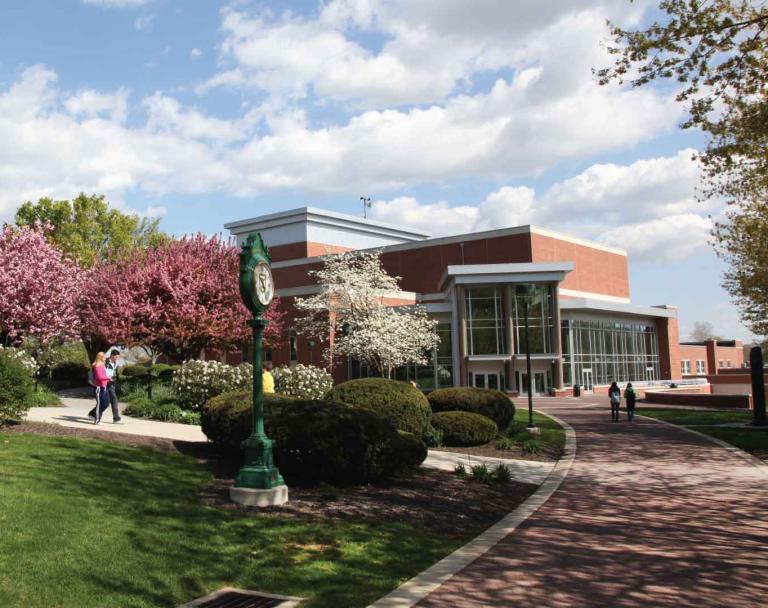Spencer Smith

York College Senior Strives to Save Environment with New Technology
Spencer Smith '22 (right)Civil Engineering major Spencer Smith ’22 recently represented the nation at an international conference on climate change.
Spencer Smith ’22 doesn't like discussing politics. It often becomes a battle rather than a discussion, the York College of Pennsylvania senior says. “I'm of the firm belief that there's always a compromise.” That said, he's unyielding on two points: Climate change is real, and he can help.
“I feel like I should use my gifts to give back to others, and this is one of the largest battles of my generation—the fight against climate change,” he says. “I want to do what I can to help.”
Sustainability, Smith says, lies “in making sure that people know this is a man-made issue, and we need to do what we can to mitigate it so we don't suffer the consequences.”
“We're already seeing some of the effects of climate change, even though we predicted that it would be our kids, or our kids' kids, who would live through it,” he says. “If we keep kicking the can and don't take action, we're going to reach the point where we can no longer reverse the damages that have been done.”
Finding solutions
Smith, a 22-year-old native of Bethlehem, Pennsylvania, is completing his Civil Engineering major at York College with a minor in Environmental Sustainability.
His interest in engineering began with LEGO sets and creative video games. In high school, he participated for four years in Project Lead the Way, a STEM-intensive curriculum that focused his interest on civil engineering.
“I want to spend more of my time on the solution side of the work,” Smith says. “I don't really see myself working on policy, on a governmental level. I've always been more of a technology person. I want to get that technology into the hands of people so they can be more sustainable.”
York College emphasizes the environmental aspects of civil engineering, he says, which is exactly what he wanted.
Recently, he took a significant step forward in understanding the role of engineering in environmental sustainability from a global perspective.
Representing the U.S.
In November, Smith was one of 10 students chosen to represent the American Chemical Society at COP26, the 26th international gathering known formally as the Conference of the Parties, or the United Nations Framework Convention on Climate Change, in Glasgow, Scotland.
Smith says food production there emphasizes carbon neutrality through farm-to-table and water-to-table produce. Scotland doesn't use plastic bags; shoppers are expected to bring (or buy) their own reusable bags, he notes, and straws are rare.
“There are a lot of cultural differences—and that's the key to sustainability,” he says. “It has to be a social change, not a political one.”
At COP26, Smith took note of innovations in transportation. “Their entire fleet of buses is electric. They demonstrated their first hydrogen-fueled bus, which is great. And we used the trains every day,” he says. “Everything was a 10-minute walk from the train station, or there was a subway connection to where we wanted to go. Their public transportation is extremely robust.”
He attended demonstrations of an electric airplane engine, a “fully autonomous” automobile, a process converting manure into a biomass fuel, and “really cool tech from around the world.”
Other topics included carbon emissions—Smith says everyone was discussing possible solutions, such as pumping emissions into the ground to enrich soil or injecting it into concrete

